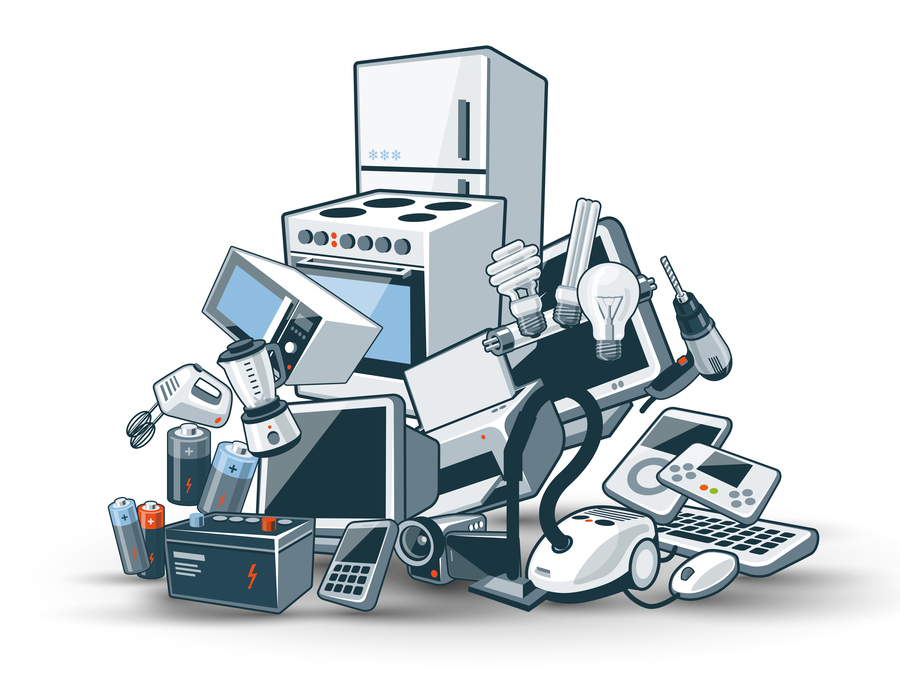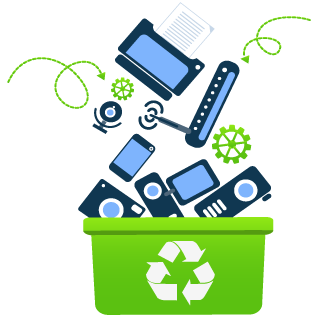E-Waste means electrical and electronic equipment, whole or in part discarded as waste by the consumer or bulk consumer as well as rejects from manufacturing, refurbishment and repair processes.
In simple terms, e-waste is an abbreviation for electronics and electrical equipment and its parts that have been disposed of by the owner.
The term waste here implies that the product has no further use or used to its maximum potential.
From a small product such as a circuitry wire to a product as big as a refrigerator, after usage falls under e-waste. To give you a clear idea, we could categorize e-waste into the following.

Let’s understand what is recycling. Basically, recycling is the process of converting any used materials into reusable materials. Recycling can help us lower the usage of new fresh materials.
Take an example of plastic, it is polluting our oceans due to this all the creatures in the oceans are getting severely infected.
So recycling can help us to avoid all these destructions to the Ocean or nature. In this modern age & populated age, recycling is very much mandatory because the resources of the environment are very highly utilized.
E-Waste Management works to Recycling material would produce a fresh new material for example the used papers can be brought into life and can be reused.
So BERPL recycling is available to help you recycle your waste. So let’s be a good citizen of Our Country & been a good Human being let’s recycle all the materials properly.

This stage comprises of the removal of critical components from the e-waste to avoid dilution or contamination with toxic substances during downstream processes.
this is the second stage in e-waste treatment process, normally an industrial large scale operation to obtain concentrates of recyclable materials in a dedicated fraction and separate hazardous materials. Crushing units, shredders, magnetic and eddy current and air separators are some of the mechanical processing plant equipment. Gas emissions are filtered and effluents are treated to minimize environmental impact.
refining helps get back raw materials with minimal environmental impact. Most of the fractions need to be refined or conditioned in order to be sold as secondary raw materials or to be disposed of in a final disposal site.